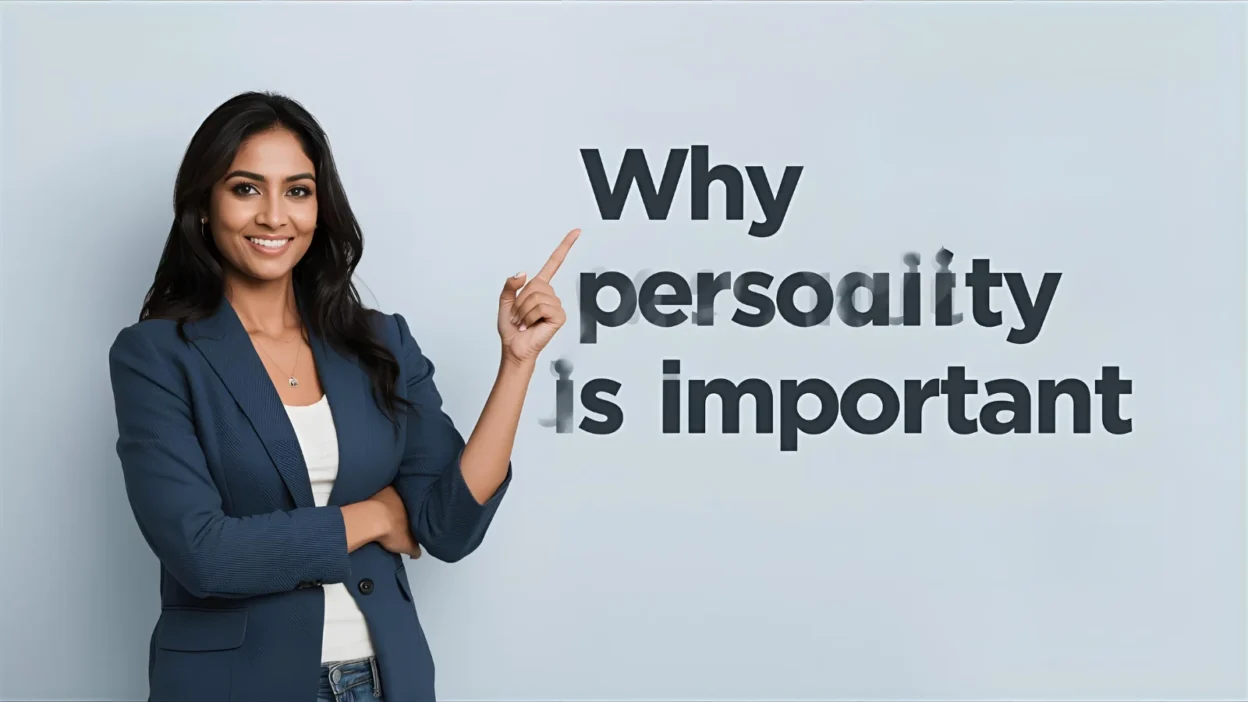When you think of what makes someone truly stand out, it’s not just their looks or skills—it’s their personality. Personality is the blend of traits, behaviors, and attitudes that define who we are. It influences how we think, how we act, and how we connect with others.
But why is personality so important? The answer lies in how it affects our identity, relationships, careers, and overall happiness. Let’s dive in.
Understanding the Meaning of Personality
Personality is the unique set of characteristics—emotions, habits, values, and social behaviors—that make each individual distinct.
📌 Definition: Personality is “the dynamic organization within the individual of those psychophysical systems that determine their characteristic behavior and thought.” (Allport, 1937).
In simpler words: personality is what makes you, YOU.
The Psychology of Personality
Psychologists have studied personality for decades to understand human behavior.
- Big Five Personality Traits (OCEAN):
- Openness
- Conscientiousness
- Extraversion
- Agreeableness
- Neuroticism
- Personality theories:
- Freud emphasized unconscious drives.
- Carl Jung highlighted archetypes and introversion vs. extraversion.
- Modern psychology focuses on personality tests (like MBTI).
💡 Personality psychology helps explain why people react differently to the same situation.
Why Personality Is Important in Daily Life
Personality plays a role in almost every decision, relationship, and interaction. Here’s why it matters:
- Self-identity – defines who you are and what you stand for.
- Communication – shapes how you express ideas and emotions.
- Decision-making – affects whether you’re cautious or adventurous.
- Conflict resolution – determines how you handle disagreements.
- First impressions – people often remember personality more than looks.
✨ A kind, confident, or funny personality often leaves a stronger impact than appearance alone.
Personality and Relationships
Relationships thrive on personality compatibility:
- Friendships – shared humor, empathy, and trust build bonds.
- Romantic relationships – attraction deepens when personalities complement each other.
- Family ties – personality influences patience, understanding, and harmony.
- Work relationships – collaboration depends on flexibility and cooperation.
💬 “People will forget what you said, people will forget what you did, but they will never forget how you made them feel.” – Maya Angelou
Personality and Career Success
In the workplace, personality is often as important as skills.
- Leadership – confidence, empathy, and vision inspire others.
- Teamwork – agreeableness and openness help groups succeed.
- Customer relations – friendliness builds trust and loyalty.
- Adaptability – resilient personalities handle stress better.
📌 Example: Two job candidates may have equal qualifications, but the one with a positive, proactive personality often gets hired.
Types of Personality
Psychologists classify personalities into categories for better understanding.
- Introverts vs. Extroverts – prefer solitude vs. social interaction.
- Type A vs. Type B – competitive and driven vs. relaxed and patient.
- Thinkers vs. Feelers – logic-based vs. emotion-based decisions.
- Judgers vs. Perceivers – structured vs. flexible approaches.
👉 No personality type is “better.” Each has strengths and challenges.
Real-Life Examples of Personality’s Power
- Oprah Winfrey – her warm, empathetic personality made her a global icon.
- Steve Jobs – his intense, visionary personality revolutionized technology.
- Robin Williams – his lively, humorous personality brought joy to millions.
🌟 These examples show how personality shapes influence and legacy.
How Personality Affects Happiness
Your personality influences how you experience joy:
- Optimistic people see challenges as opportunities.
- Compassionate personalities find happiness in helping others.
- Curious personalities enjoy exploring and learning.
✨ Happiness isn’t only about circumstances—it’s about how your personality interprets them.
Challenges in Personality Development
- Negative traits – arrogance, impatience, or dishonesty harm relationships.
- Personality disorders – conditions like narcissism or borderline personality disorder affect behavior.
- External pressures – society sometimes pushes people to suppress their real personality.
📌 Key: Awareness and self-growth help overcome personality challenges.
How to Develop a Strong Personality
- Be authentic – stay true to your values.
- Improve communication – listen as much as you talk.
- Stay positive – optimism is attractive and contagious.
- Learn empathy – understanding others builds deeper connections.
- Keep growing – adapt, learn, and evolve with experiences.
Idioms and Expressions About Personality
- “Larger than life” – someone with a bold, unforgettable personality.
- “Heart of gold” – a kind and generous person.
- “Set in their ways” – someone resistant to change.
- “A people person” – someone who enjoys being around others.
- “Salt of the earth” – a genuine, humble person.
Synonyms for Personality (with Usage Examples)
| Synonym | Example Sentence |
|---|---|
| Character | Her strong character impressed everyone. |
| Disposition | He has a cheerful disposition. |
| Nature | Helping others is in her nature. |
| Temperament | His calm temperament makes him a great leader. |
| Identity | Our personality shapes our identity. |
Grammar Note: “Personality” vs. “Character”
- Personality – outward traits and behaviors that others see.
- Her bubbly personality makes her popular.
- Character – inner moral qualities and values.
- Honesty is part of his strong character.
📌 People often confuse the two, but personality is external expression, while character is inner foundation.
The Future of Personality in a Digital World
In the age of technology and AI, personality matters more than ever:
- Online presence – your digital personality shapes perceptions.
- Personal branding – authenticity builds trust on social media.
- AI and psychology – future tools may analyze personalities deeply.
- Global interaction – personality helps cross cultural boundaries.
🌍 In a digital-first world, personality remains the ultimate human connection.
FAQs About Why Personality Is Important
Q1: Why is personality important in life?
Because it defines who you are, influences happiness, and affects relationships and career success.
Q2: Can personality change over time?
Yes, experiences and environment can shape personality traits.
Q3: Which is more important—personality or looks?
Personality lasts longer and creates deeper impact than appearance.
Q4: How does personality affect communication?
It shapes tone, confidence, listening, and empathy.
Q5: What makes a strong personality?
Authenticity, positivity, empathy, adaptability, and confidence.
Conclusion
Personality is the invisible thread weaving together identity, happiness, and success. It impacts how people perceive us, how we build relationships, and how we achieve goals.
The reasons why personality is important are clear: it is the foundation of human interaction and growth. Skills may fade, appearances may change, but personality leaves a lasting impression.
✨ In the end, your personality is your personal brand—make it genuine, kind, and unforgettable.

Joy Root is a content writer at Whygenix.com, creating clear, engaging articles that explain complex ideas simply, helping readers understand why topics matter in everyday life and personal growth.




